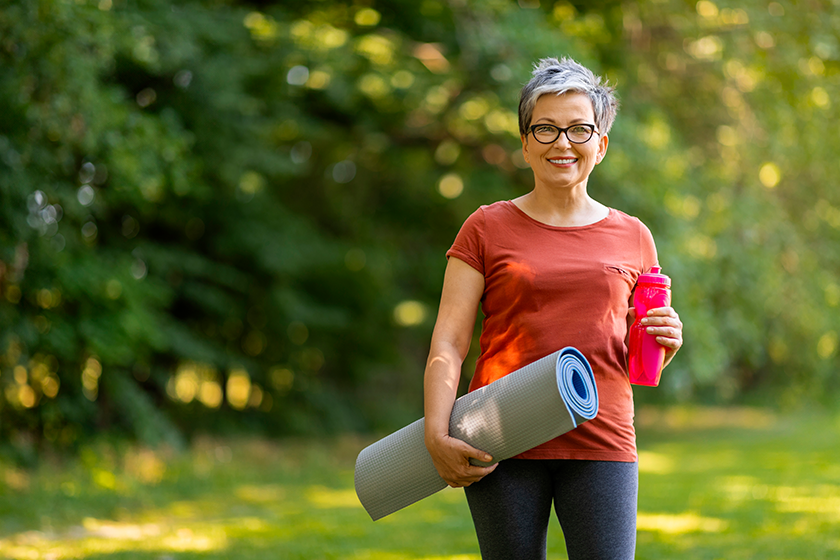Bone health becomes a top priority as we age, especially after 60. Bones naturally lose density over time, which can lead to an increased risk of fractures or osteoporosis. The good news is that there are practical steps you can take to strengthen your bones and improve overall health. Focusing on nutrition, exercise, and lifestyle habits can promote stronger bones and a more active life for seniors. Here’s what you can do to increase bone density after 60.
Focus on Calcium and Vitamin D
Calcium is the foundation of strong bones. Incorporating calcium-rich foods such as dairy, leafy greens, and fortified plant-based milk into your diet supports bone strength. Vitamin D, on the other hand, plays a vital role in calcium absorption. Spending time outdoors in sunlight helps your body produce vitamin D naturally. If needed, supplements may be recommended by your healthcare provider to maintain optimal levels.
Weight-bearing and Resistance Exercises
Physical activity is key to building and maintaining bone density. Weight-bearing exercises like walking, jogging, or dancing encourage bone growth by applying pressure to your skeletal structure. Resistance training, which involves lifting weights or using resistance bands, helps improve bone density and strengthens muscles that support the bones. Starting with light weights and gradually increasing intensity is a safe way to build strength without overstraining.
Include Bone-friendly Nutrients
Beyond calcium and vitamin D, other nutrients play a role in bone health. Magnesium, found in nuts, seeds, and whole grains, helps maintain bone structure. Vitamin K, present in broccoli, spinach, and Brussels sprouts, supports bone mineralization. Omega-3 fatty acids, found in fatty fish like salmon or flaxseeds, also contribute to reducing inflammation, which can benefit bone health.
Maintain a Healthy Weight
Being underweight can increase the risk of bone loss, while excessive weight may add stress to your bones and joints. Striving for a balanced weight through nutritious eating and regular exercise helps protect your bone health. A balanced approach means your bones have the support they need to stay strong and resilient.
Limit Bone-damaging Habits
Certain habits can negatively affect bone density. Smoking and excessive alcohol consumption are known to weaken bones over time. Reducing or eliminating these behaviors contributes to better overall health and supports stronger bones. Similarly, limiting caffeine intake may benefit those who consume it in large amounts, as it can interfere with calcium absorption.
Regular Bone Density Tests
Bone density scans, also known as DEXA scans, can measure your bone health accurately. These tests help identify early signs of bone loss and guide tailored interventions. Regular checkups allow your doctor to monitor changes and recommend appropriate actions to strengthen your bones.
Invest in Your Health: Discover Our Dimensions Senior Living Health and Wellness Program
Small, consistent efforts in nutrition, exercise, and lifestyle choices make all the difference in maintaining strong bones and overall well-being in old age. Take the first step toward stronger bones and a healthier future at our retirement community in Virginia Beach, VA. We have designed the Dimensions Health and Wellness program to support your overall health through personalized fitness plans, catered dining, wellness sessions, and a vibrant environment.
Explore our resort-style amenities, from instructor-led exercise classes to educational seminars, all aimed at enhancing your quality of life. Start your journey to better bone health and a more active lifestyle with us today—because your health matters.






